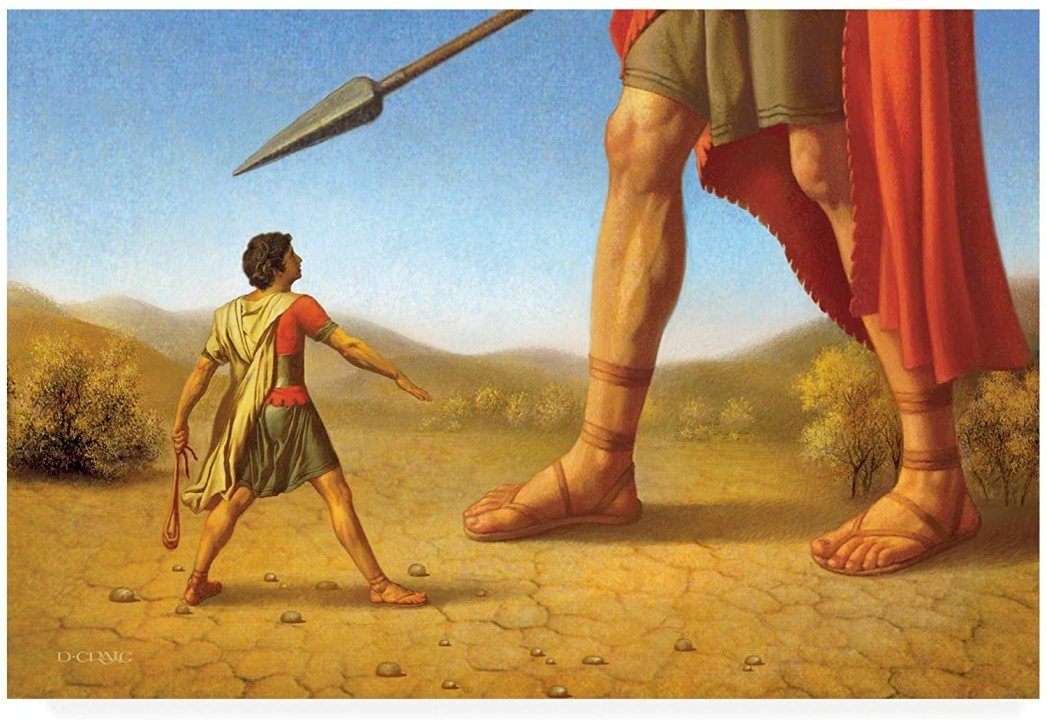The Curious Advantage of Disadvantage and why Appearances are not always what they may seem
The David and Goliath story is one I recall from school about how a humble shepherd, David, defeated a Giant Warrior, Goliath, by being more clever, skilful, daring but most of all surprising.
So how could an experienced and giant warrior lose to a small and physically insignificant shepherd boy?
In Malcolm Gladwell’s book ‘David & Goliath’ - he argues that all is not what it may seem on the surface. Gladwell explains that Goliath was mostly likely suffering from the unwanted side effects of gigantism, and was therefore most likely blind. Acromegaly could account for Goliath’s unusual size and critical vision problems. It would explain Goliath’s slow movements; his request that David come to him rather than the other way around; his need for an attendant to walk with him onto the battlefield; and even the fact that Goliath taunts David by saying, “You come against me with sticks?” in the plural, when, in fact, David is carrying a single stick.
David, in comparison, had nothing that prevented him from performing well. His expertise with a slingshot, honed by a need to ward off fearsome man-eating predators from his flock, was decisive. David possessed the firepower of a rifle, the accuracy of a top marksman and the distance to ensure his safety. The advantage for David was therefore significant.
Goliath was slow, cumbersome, unable to reach David to realise his size and strength advantage, and was therefore unable to compete. While it appeared to be a mismatch one way, it was a mismatch the other way around with David possessing the advantage!
Another example Gladwell explores is the story of the basketball team full of exceptionally tall players. While height is usually considered a vital attribute and an advantage in basketball, Gladwell highlights a team whose members were all very tall, making them less agile and coordinated compared to teams with a mix of heights. Versatile players who could move quickly and adapt to different game situations. This also points to the importance of diversity in teams.
Throughout the book, and in life generally, these anomalies are present in multiple contexts, from history, sport, business and politics. For example, Gladwell found that 70% of UK Prime Ministers between 1850-1950 had suffered the loss of a parent while they were children. This, one would think would impede progress, but evidence suggests otherwise.
So what may seem like a mismatch on the surface is far from it in reality. There is something in the 'curious advantage of disadvantage.'
I guess this leaves us to think about our own lives and our businesses.
What might we think we are disadvantaged by, and what could be flipped into an advantage with the right thinking and actions?!


